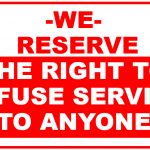
“Do you crave Facebook likes?” asks Martin Graff, Ph.D., in a recent article and study. ‘The attention I get from social media is important to me’, ‘I consider someone to be popular based on the amount of likes they get … Continue reading

“Do you crave Facebook likes?” asks Martin Graff, Ph.D., in a recent article and study. ‘The attention I get from social media is important to me’, ‘I consider someone to be popular based on the amount of likes they get … Continue reading

Hi Dr. Hurd, I have a “reader question” for you. I work as a mental health clinician in a school-based setting, and over the past couple of years, I’ve seen the term “executive functioning” thrown around quite a bit. However, … Continue reading

When you want somebody to do something for you, you’re COUNTING on their self-interest, whether you know it, or think so, or not. Just the other day, a man approached me and acted like he was entitled to a session … Continue reading

Recently, I wrote an article saying that alcoholism and substance abuse are not diseases, but problem behaviors. A disease, I wrote, is something that — regardless of the cause — progresses inside your body, and that only passive submission to … Continue reading

“The world doesn’t owe you a living.” Once upon a time, many parents said this to their children. Today, not so much. It would practically be considered child abuse. But it’s still true. Nobody owes anybody anything, unless an explicit … Continue reading

In December 2015, the state of Delaware (where I live) received 348 concealed carry applications, more than double the 155 from the previous December. There were 2,614 permit applications in 2015 as opposed to 1,674 in 2014. Each month last … Continue reading

A New York Times blogger recently questioned her choice to teach her daughter to be kind, above all else. She writes, “My daughter had become the girl I hoped she would be — the girl I always wanted to be … Continue reading

Is “affluenza” really a mental or behavioral disorder? From a CNN story: Mexican authorities have detained so-called “affluenza” teen Ethan Couch and his mother near the popular Mexican Pacific beach resort town of Puerto Vallarta, officials briefed on the matter … Continue reading

The following is an excerpt from my book: If you still feel your loved one needs psychological help, the other thing to watch out for is arrogance. By arrogance I mean the irrational assumption that your negative views about your … Continue reading

At Christmastime, there are people who say, “It is more blessed to give than to receive.” Think about this for a moment. Giving certainly can be a joyful experience. However, giving does not bring pleasure when it renounces the self. … Continue reading

A number of readers asked me to comment on the recent Wall Street Journal article, “What Your Therapist Is Really Thinking: Yes, therapists sometimes get bored; excerpts from an interview with psychotherapist Paul Hokemeyer.” When asked what the most common … Continue reading

Women for Sobriety has a remarkable series of “13 Steps” to serve as an alternative to the 12 Steps of Alcoholics Anonymous. I have a life-threatening problem that once had me. I now take charge of my life and my … Continue reading